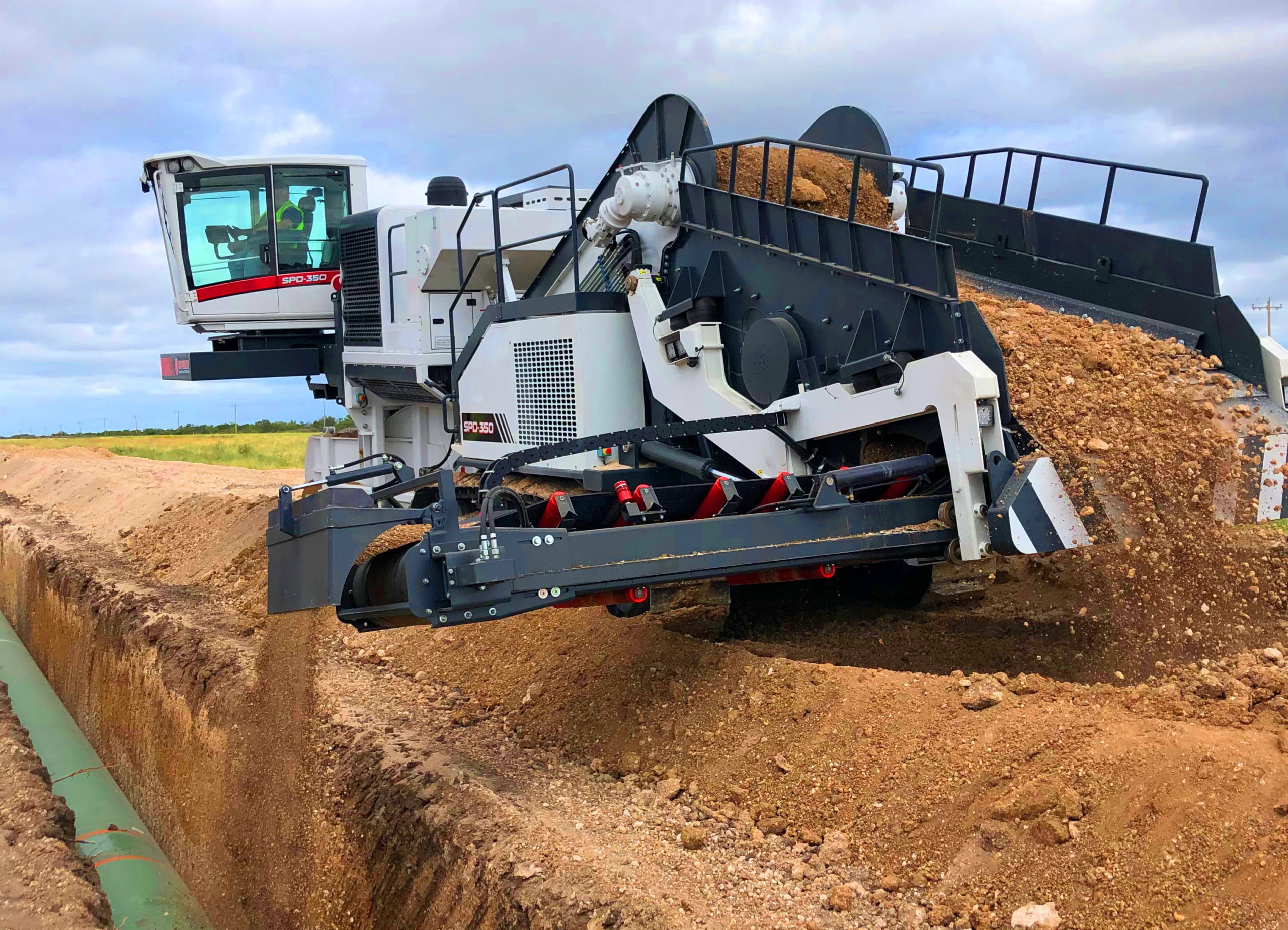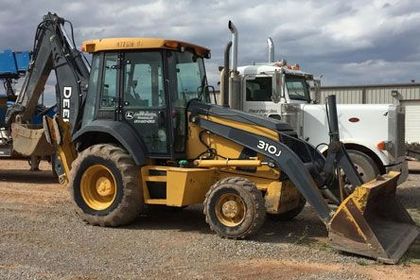A Comprehensive Guide to the Numerous Sorts Of Oil Field Equipment and Pipeline Equipment Available
The oil and gas market counts greatly on specialized equipment for efficient removal and transportation. Numerous sorts of equipment, from drilling rigs to storage space containers, play crucial duties in this intricate process. Each piece of tools offers distinctive functions that add to overall operational success. Recognizing these components is essential for any person associated with the industry. As the market advances, so also do the innovations that sustain it. What innovations are on the perspective?

Drilling Rigs: The Foundation of Oil Expedition
Drilling rigs function as the necessary machinery in the domain of oil exploration, allowing firms to access hydrocarbon reserves buried deep underneath the Earth's surface area. These rigs are available in different kinds, including land rigs, offshore rigs, and mobile systems, each created to operate in details atmospheres. Furnished with sophisticated innovation, drilling rigs can pass through geological developments with precision, ensuring efficient source extraction. The architectural integrity and operational capacities of these rigs are critical, as they should endure extreme problems and substantial stress. Additionally, the option of an exploration rig impacts the overall job cost and timeline, making it an important consideration for oil firms looking for to optimize their expedition initiatives and take full advantage of performance in their operations.
Pumps: Essential for Fluid Movement
In the oil removal process, the function of pumps is significant, promoting the motion of liquids throughout various phases of manufacturing. Pumps are necessary for transferring petroleum, water, and other fluids from underground tanks to the surface area and then via pipelines to refineries. They are available in different types, consisting of centrifugal, favorable variation, and completely submersible pumps, each serving details purposes based on the liquid attributes and functional needs. Centrifugal pumps are frequently utilized for their efficiency in high-flow applications, while favorable variation pumps master taking care of viscous fluids. The selection of pump effects total performance, operational security, and maintenance expenses. Proper selection and maintenance of pumps are important for optimizing production and lessening downtime in oil field procedures.
Valves: Managing Flow and Pressure

Shutoffs play a crucial function in handling the circulation and stress of liquids within oil fields and pipes. Numerous kinds of shutoffs serve distinct applications, each made to satisfy particular features basic for efficient operation - Superior rentals squeeze tools. Understanding the characteristics and uses these shutoffs is important for maximizing system efficiency and safety
Kinds of Valves
Necessary elements in oil field procedures, shutoffs play a critical duty in regulating the circulation and pressure of fluids within pipelines and tools. Numerous sorts of valves are utilized to meet the diverse needs of oil and gas manufacturing. Usual types consist of entrance shutoffs, which offer a straight-line flow and minimal stress decrease; globe shutoffs, recognized for their strangling capacities; and round valves, recognized for their quick on/off control. In addition, check valves avoid heartburn, while butterfly shutoffs offer a light-weight solution for managing circulation. Each shutoff type is created with details materials and configurations to withstand the rough conditions usually located in oil areas, ensuring integrity and performance in operations. Comprehending these kinds is crucial for efficient system administration.
Valve Applications and Features
While numerous kinds of valves offer distinct objectives, their main applications focus on managing circulation and pressure within oil and gas systems. Valves such as entrance, world, and round valves regulate liquid movement, guaranteeing peak performance and security. Gate shutoffs are frequently used for on/off control, supplying minimal flow resistance. World shutoffs, on the other hand, offer precise flow regulation, making them suitable for throttling applications. Round valves are preferred for their fast procedure and limited securing capacities. Additionally, stress safety valve are crucial for protecting against system overpressure, guarding tools honesty. Overall, the ideal option and application of valves enhance operational effectiveness, making sure the reliable transport of oil and gas with pipes and handling centers.
Compressors: Enhancing Gas Transport
Compressors play an important duty in the efficient transport of gas, making sure that it relocates smoothly through pipes over long ranges. These gadgets enhance the stress of gas, enabling it to overcome rubbing and altitude modifications within the pipeline system. In addition, compressors promote the balancing of supply and demand, accommodating changes in intake and production rates. Numerous sorts of compressors are utilized in the sector, consisting of centrifugal, reciprocating, and rotating screw compressors, each offering distinctive advantages based on the operational needs. Normal upkeep of these compressors is crucial to maximize efficiency and reduce downtime, ultimately contributing to a trusted gas transport network. Their critical function highlights the relevance of compressors in the general oil and gas facilities.
Storage Tanks: Safe and Reliable Fluid Administration
Efficient transport of gas relies on view website different sustaining systems, one of which is the appropriate administration of storage space containers. These storage tanks play an essential function in securely consisting of liquids, guaranteeing that functional performance is kept while minimizing environmental threats. Constructed from sturdy products, they are created to endure high pressures and destructive components. Correctly sized and purposefully located, tank facilitate the smooth circulation of gas and other fluids, preventing bottlenecks in supply chains. Routine maintenance and tracking are crucial to discover leakages or architectural concerns, advertising safety and conformity with regulative criteria. Ultimately, the effective management of tank is crucial for the overall stability and integrity of the oil and gas market's liquid handling systems.
Pipeline Systems: Framework for Transportation
Pipeline systems offer as the backbone of the oil and gas sector, assisting in the reliable transportation of hydrocarbons over large distances. These systems are composed of various components, consisting of pipelines, valves, pumps, and compressors, all diligently designed to ensure smooth circulation. The materials used in pipeline building and construction, often steel or high-density polyethylene, are selected for longevity and resistance to deterioration. Pipeline networks can span throughout land and water, connecting manufacturing websites to refineries and warehouse. In addition, advanced innovation allows real-time surveillance of flow prices and pressure degrees, enhancing operational performance. The critical placement of these pipes reduces environmental effect while maximizing source availability, consequently my website playing a vital duty in meeting energy demands around the world.
Security Equipment: Guaranteeing Worker and Environmental Management
The operation of pipeline systems, while vital for power transport, additionally presents considerable safety obstacles for workers and the setting. Safety and security devices plays a considerable role in reducing these risks. Personal safety tools (PPE) such as safety helmets, handwear covers, and non-slip footwear safeguards workers from physical risks. Furthermore, gas detection systems keep track of for leaks, ensuring that hazardous compounds do not present a threat to employees or the bordering ecological community. Emergency closure systems are vital for quickly stopping procedures during a crisis, protecting against prospective disasters. Spill containment products, consisting of absorbents and barriers, are basic for decreasing ecological impact. In general, spending in all-encompassing safety and security devices is important for maintaining functional honesty and protecting both employees and the atmosphere in the oil and gas field.

Often Asked Inquiries
Just how Do I Choose the Right Oil Field Equipment for My Task?
Picking the appropriate oil area equipment entails examining project specifications, budget restrictions, and operational needs. Think about aspects such as devices integrity, compatibility with existing systems, and the provider's online reputation to guarantee peak performance and security.
What Are the Upkeep Demands for Oil Field Equipment?
Upkeep requirements for oil area equipment include regular evaluations, lubrication, and timely fixings. Operators should likewise stick to maker guidelines, display efficiency metrics, and guarantee compliance with safety and security laws to boost longevity and efficiency.

Exactly How Can I Make Certain Compliance With Environmental Regulations?
To ensure conformity with best excavator ecological guidelines, firms need to perform normal audits, execute best practices, purchase training, keep proper paperwork, and stay updated on regulation (Superior Oilfield pipeline equipment rentals). Collaboration with environmental agencies can also improve adherence to policies
What Is the Ordinary Life-span of Pipeline Equipment?
The ordinary life expectancy of pipeline equipment typically varies from 20 to 50 years, depending on variables such as material top quality, environmental problems, and upkeep practices. Routine inspections can considerably affect longevity and functional efficiency.
Just how Do I Securely Transfer Oil Field Equipment to Remote Locations?
Transporting oil field devices to remote areas calls for careful preparation, consisting of route evaluation, protecting permits, making use of suitable automobiles, and ensuring safety procedures are complied with. Appropriate training and communication amongst staffs are important for successful transportation.